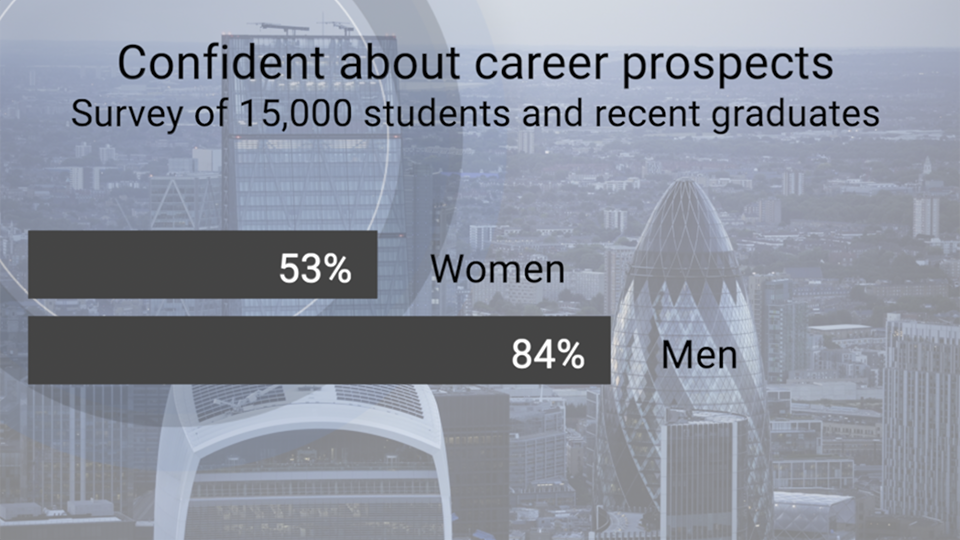Career confidence gender gap and boost to further education and training
Recent reports have highlighted a gap between how men and women feel about their careers as a result of the pandemic amidst a boost for post-graduate education and professional certification.
A survey of 15,000 university students and recent graduates by the CFA Institute, which represents finance workers, found that while, overall graduates feel confident about their future careers and think it will be as good or better than their parent's generations', women are a lot less confident than men. 84% of men feel confident about their career prospects compared to only 53% of women.
Despite this overall confidence, nearly half (46 percent) of the respondents reported they are reassessing their career paths in light of the pandemic — their top concerns now include low pay in their preferred sector (26 percent), lack of jobs in their preferred sector (25 percent) and working in a sector that doesn’t fulfil or interest them (26 percent).
It also found that twice as many women as men have had to reassess the sector they would like to go into due to the pandemic. Medicine and science, healthcare and education are seen as the most stable and attractive careers.
The publishing group, Pearson, found in a survey of 6,000 women that three quarters feel bias and discrimination are still holding women back in their careers, ahead of age, racial and other gender-related discrimination. It found 90% are planning to take some form of action to improve their career prospects in the year ahead and that half are planning to change jobs with one in five planning to start their own business.
Boost for post-graduate education and professional certification
Those at the start of their careers are now more likely to invest in training and qualifications than before. When planning their careers, students and graduates are seeing increased value in taking additional education and most believe postgraduate qualifications and professional certification are now more important when looking for a job. The CFA found a significant number of 18-25 year olds feel underqualified for the job they want. This is causing a significant uptake in further studies and around half of graduates are now planning to prolong their time in education.
The CFA’s findings are in line with other leading professionals bodies. The Chartered Institute of Marketing reported in a survey of 16-24 year olds that three quarters have missed out on training opportunities, around one third (35%) have already taken additional training to help them in the job market. Four in ten (42%) of those say they funded the training themselves, and a significant majority (76%) expect employers to invest in future training opportunities to compensate for the loss of skills during Covid.
Chris Daly, chief executive of the Chartered Institute of Marketing: "we are seeing more students undertake additional training and unpaid internships to help them stand out from the crowd and secure an entry level role.”
Peter Watkins from CFA Institute commented: “Graduates are clearly focusing on work-readiness, professional skills, and boosting their job prospects; higher education and credentialling institutions need to ensure their offerings meet this demand.”


